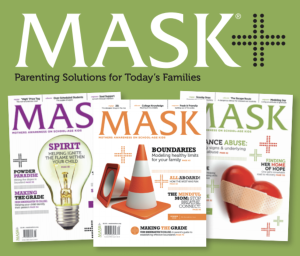
Five Insurance Policies Families Should Have
October 31, 2021
Our Words Create Our World
November 3, 2021
In junior high it becomes critical, more for girls than boys, at this age to be able to say no and have a set of socially acceptable refusal skills.
Research shows that girls are more at risk during this age of risky behaviors in social situations, although that gender gap is closing fast. Regardless of gender, confidence and self-esteem are resiliency skills linked with being able to say no and stand up for your values while still maintaining friendships. Social pressures are very high during this age range and being able to say no is a skill that is incredibly valuable for kids as they navigate junior high social situations. Focus on developing their value system so they have a reason to say no. Help them build confidence and self-esteem so that they value themselves enough to say no. Practice exit strategies with them when they are in sticky situations. Talk to them about the different styles of communication including assertive, aggressive, and passive. Go through past interactions with them about times they wanted to say no and felt like they couldn’t or times they said no and felt successful. The more open conversations you can have with your kids about refusal skills, the more comfortable they will feel to come and talk to you.
Signs
- They understand the importance of refusal skills
- They can identify their values
- They can say no with politeness
- They understand the different types of communication
- They have a lot of different exit strategies
- They have set goals for themselves
- They can say no because they don’t want to be distracted from their goals
- They feel supported when they say no
- They understand it is ok to say no
What you can do:
- Practice simple, honest refusal strategies
- Teach them in it OK to say no
- When they say No to you in safe acceptable ways, accept it so they understand it is ok to say no
- Empower them with strategies for assertive communication
- Process their experiences when they have said no
- Teach them to identify their values and the reasons they would say no
- Talk to them about boundaries and how saying no can help establish healthy boundaries
- Discuss the pitfalls of people-pleasing behaviors
- Help them identify peer groups that will accept refusal
Conversation Starters:
- “Hey, I know how hard it is to say no to your friends. You’d be worried they wouldn’t want to stay friends with you or that they won’t include you next time. We can come up with some ways to say no to them for things you really don’t want to do.”
- “When are the times you really don’t want to do something? At home, at school, with friends, any time – when is it ok to say no and how can you say no without hurting relationships?”
- “When someone says No to you, how does that make you feel? Will you listen to them when they say no?”
By// Dr. Shefali Gandhi
MASK the Parenting Magazine a quarterly publication providing solutions for Today’s Families.
The parenting manual offering solutions to the modern-day challenges families face. From Pre-K
through College stay up to date on the modern day issues families face.
Are you up to date on the issues your child is facing?
MASK Mothers Awareness on School-age Kids offers parenting solutions for today’s families. MASK tackles important topics – from drugs and alcohol to bullying and Internet safety -and gives students, parents and the community the knowledge and tools to manage these potential challenges.
Subscribe today! https://www.tools4teaching.com/product/mask-the-magazine/
Download and share the MASKmatters app now! Made for children, parents, teachers and in Spanish.
Have solutions at your fingertips
Available free on apple and google play links below
Apple https://apps.apple.com/us/app/maskmatters/id1482305692
Google Play
https://play.google.com/store/apps/details?id=com.maskmatters.maskmattersapp&hl=en_US&gl=US




